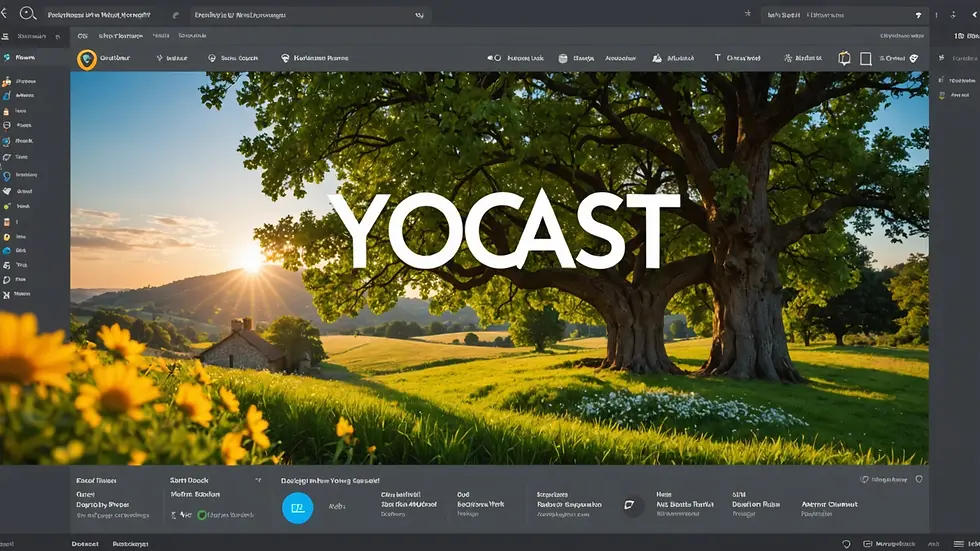Top 10 Must-Have SEO Tools for Maximizing Website Performance
- Rank Pro Academy

- Nov 15, 2024
- 4 min read

In the fast-paced world of digital marketing, Search Engine Optimization (SEO) is essential for anyone wanting to boost their website's visibility. Whether you're a blogger, a small business owner, or an SEO expert, the right tools can help you elevate your search engine rankings significantly. Here, we highlight the top 10 must-have SEO tools that can maximize your website's performance and drive traffic like never before.
1. Google Analytics
Google Analytics is a cornerstone of SEO tools. This free platform provides extensive insights about your website’s traffic and user interactions. For example, you can determine that 60% of your visitors come from organic searches, and you can see which pages generate the most engagement.
Moreover, this tool enables you to monitor how your keywords perform over time. By analyzing which visitors convert, you can tailor your strategies for better results. Understanding user behavior can lead to significant improvements in your SEO approach.

2. SEMrush
SEMrush is a comprehensive marketing toolkit known for its keyword research capabilities. Users can find high-demand, low-competition keywords, which can increase website traffic. For instance, one SEMrush user reported a 50% boost in monthly visitors after optimizing their content based on keyword suggestions from the tool.
Additionally, SEMrush includes a site audit feature that identifies technical issues hindering your site's performance, making it easier to refine your SEO strategies.
3. Ahrefs
Ahrefs is a robust tool primarily used for backlink analysis. It shows which websites link to yours, helping you promote brand awareness and discover new partnership opportunities that may enhance traffic. According to studies, websites with a stronger backlink profile typically see a 25% higher domain authority.
Ahrefs also offers keyword research, competitor analysis, and site audits, giving you a holistic view of both your performance and that of your rivals.

4. Moz Pro
Moz Pro simplifies SEO tasks with its suite of tools. Its keyword research tool provides valuable metrics like keyword difficulty and potential search volume. For example, tracking keywords with a difficulty rating under 30 can lead to easier ranking opportunities.
Additionally, Moz Pro's “Domain Authority” metric predicts how well a site may perform on SERPs. Keeping an eye on this score can reveal areas needing improvement in your SEO strategy.
5. Yoast SEO
Yoast SEO is a must-have plugin for WordPress users, focusing on on-page SEO. It features keyword optimization, readability checks, and advanced site management tools. For many beginners, using Yoast has led to 75% of their new content ranking on the first page of search results.
With its easy-to-navigate interface, even newcomers can apply best practices to help improve their content's searchability.

6. Screaming Frog SEO Spider
Screaming Frog SEO Spider is a desktop tool that acts as a web crawler. It shines in identifying technical issues such as broken links, duplicate content, and poorly optimized meta tags. For instance, after running a site audit, you might discover that fixing broken links could improve site performance by as much as 17%.
This detailed reporting helps webmasters resolve issues that could otherwise hurt website performance.
7. Google Search Console
Google Search Console (GSC) is essential for maintaining your website’s presence in Google search results. With GSC, you can track keyword rankings and identify any index coverage issues. For instance, monitoring your click-through rate (CTR) can show an average of 3% across your most viewed pages, highlighting areas for potential content adjustments.
The insights from GSC help refine your SEO strategy for better outcomes, making it a vital tool in any SEO toolkit.

8. Ubersuggest
Ubersuggest is a user-friendly freemium tool for SEO and content marketing. Its keyword suggestion feature not only generates relevant keywords but also reveals competition data. For example, users can identify long-tail keywords, which often bring in 60% of search queries, providing opportunities for targeted content.
This makes Ubersuggest an excellent choice for beginners eager to harness the power of SEO.
9. Majestic
Majestic focuses on backlink analysis, giving you a clear view of your backlink profile. Its “Trust Flow” and “Citation Flow” metrics assess the quality of backlinks, ultimately supporting your link-building strategies. Research shows that effective backlinking can improve site performance and visibility by up to 45%.
Using Majestic helps you understand where to focus your link-building efforts for the best results.
10. AnswerThePublic
AnswerThePublic is a tool that turns search data into visual insights. It illustrates the questions people ask within your niche, providing content ideas that can enhance your engagement with customers. Using this data can help you create blog posts, FAQs, and marketing materials that directly address user queries.
By leveraging this tool, you can better optimize your content to meet your audience's needs, driving more relevant traffic to your site.
Final Thoughts
Understanding SEO can be overwhelming, but the right tools make it manageable and effective. Each tool discussed here offers a unique value, from traffic analytics to keyword research and technical audits.
Investing time to learn and utilize these tools can lead to noticeable improvements in your SEO strategy. The digital landscape changes constantly, so consistently monitoring your site’s performance is essential for achieving long-term success.
Equipped with these essential SEO tools, you're set to boost your website's performance and fulfill your online objectives. Happy optimizing!



Comments